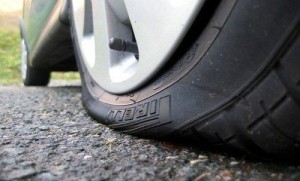 Winter is finally here! Many places have seen at least one snowfall, and temperatures are dropping. If you haven’t yet taken the time to prepare your tires for the cold weather ahead, then it’s time to get started. Here are four ways to get your tires ready for the weeks ahead, and to ensure that you will be safe when driving this winter:
Winter is finally here! Many places have seen at least one snowfall, and temperatures are dropping. If you haven’t yet taken the time to prepare your tires for the cold weather ahead, then it’s time to get started. Here are four ways to get your tires ready for the weeks ahead, and to ensure that you will be safe when driving this winter:
- Consider Using Snow Tires – This may be an obvious one if you live in a snowy climate, but snow tires are also a good idea if roads in your area tend to get icy or slippery. Tires that are worn will have a tougher time handling slick streets. Winter tires provide much more traction then normal all-season tires, so if you’re unsure if your tires are worn or not, take the cautious approach and make the switch to snow tires. When the weather warms up, get your all-season tires checked.
- Use Tire Chains for Even Tougher Conditions– Tire chains aren’t necessary for everyone, but are a good idea if you know you’ll be driving a long way this winter, or if conditions in your area are expected to be especially brutal. Tire chains are accessories you can install at home that keep the tires in contact with the surface of the road during especially wintry conditions.
-
Check Your Current Tires for Damage – If you decide to use tire chains, snow tires, or risk it with all-season tires, make sure to check them for damage. This includes taking a look at the sidewall for cracks and checking to see if they are too old. Driving with damaged tires is just about as bad as driving with worn tires or under-inflated tires. And, speaking of which…
-
Check Your Tire Pressure – Snow tires and tire chains won’t mean much if they are, or are being used, on under-inflated tires. Make sure your tires are at the proper tire pressure, and to check tires when they are cold, not right after a drive. One of the best ways to maintain proper tire pressure for a longer period is to use nitrogen in your tires instead of regular air.
We here at Nitrofleet99 are conscious of tire safety and maintenance, and wish our customers to drive safe this season. As much as we tout the benefits of nitrogen tire inflation, the practice is not a replacement for regular tire safety and maintenance.






